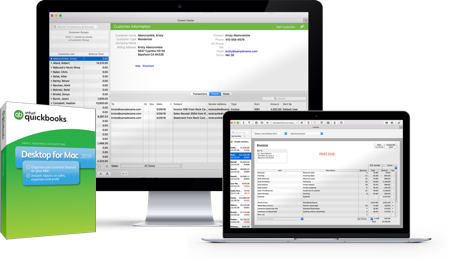
Quickbooks For Mac One Time Purchase
QuickBooks for Mac's online version can be accessed on from anywhere and any device. Cannot select save format on excel for mac. Save a lot of time doing your data entry thus cost effective, no need for a. Trying to identify duplicates created by the system instead of true purchases.
QuickBooks Online QuickBooks online is cloud-based, which means you must have a reliable Internet connection to make it work. Because it is cloud-based, you can access it from anywhere you have an Internet connection, and from any device. QuickBooks online also comes with free support, a free 30-day trial – after which you pay a monthly subscription – and allows for up to 25 simultaneous users.
One of the big differences between the online version of QuickBooks and the desktop version is that QuickBooks online has automatic features - including invoice, receipt, and report transactions - that must be done manually with the desktop version. It also has automation features for items like email reports, customer billing, and downloading bank transactions. Intuit is also eager to point out the features that you can only find with QuickBooks online: the ability to automatically schedule and send invoices and work from PC, Mac, smartphone, or tablets at any time; instant file access for accountants, and connection to more than 300 cloud-based apps. Other features that come at no extra charge with QuickBooks online are the ability to automatically download your bank transactions, automatic backup, access to the latest feature updates, and access for up to five users.
Those features are available with the desktop version, but at an added cost. One feature you won’t find in the online version is the ability to customize certain forms. Whereas you can track mileage, track inventory, and create industry-specific reports in the desktop version, those functions are limited or nonexistent in the online version. This product is probably best for businesses that will need employees to have remote access to bookkeeping and will need for multiple employees to be able to access QuickBooks at the same time, and that want to take advantage of automation. QuickBooks Desktop The desktop version of QuickBooks requires you to purchase the software upfront, and there is no free trial period. It is also only accessible from the computer it’s installed on, since it is not cloud-based. Unlike QuickBooks Online, the desktop version doesn’t allow simultaneous access from multiple users.
Support is available with the ProPlus version of QuickBooks Desktop, or for $89 for a 90-day period with other desktop versions. Desktop features include the ability to create invoices, track sales and expenses, manage accounts payable, and create one-click sales and tax reports – also features that come with the online version. The ability to calculate and rebill job costs and calculate discounts by customer are only available with QuickBooks desktop. While that may make it seem more limited, many QuickBooks Desktop users note that it is a much more robust product in terms of offering more report options, analytical capabilities, and future forecasting. This product is probably best for businesses that have a fixed office location and won’t need remote access to QuickBooks, with a smaller number of employees who will need access, that don’t want their books accessible online, or that want more customized features. What the Pros Say Jim Greer, a CPA in Austin, says the main difference that stands out between the two products is the ability to use Quickbooks Online anywhere, with multiple users accessing it at the same time. “Plus, you can easily add or remove user access,” Greer says.
“I’ve got a client here in Austin that uses a bookkeeper in New York, and then at tax time I can access reports without having to meet any of them.” Greer says that one challenge he’s run into with QuickBooks online is that it isn’t easy to navigate, and accessing multiple screens at one time is also difficult. “In the desktop version, it’s expected that you want to keep screens open in the background unless you purposefully close them, so you can easily look between reports, bills, vendors, etc. Just by clicking on the various pages,” Greer says.